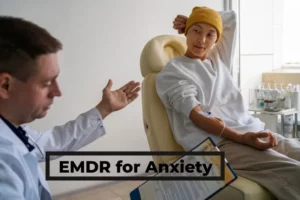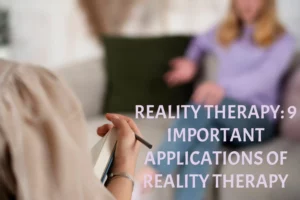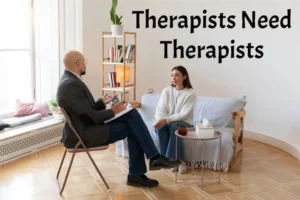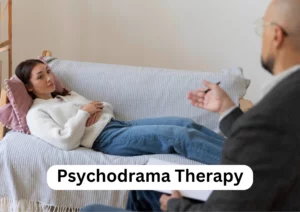Introduction
Trauma can be understood as a negative experience that a person goes through that adversely affects how they see the world around them. Trauma, if not dealt with healthily, can change the way you perceive life and further how you behave. Especially when children and young adults have such experiences, it’s important to take care of them because, in formative years, a traumatic incident can have a magnified effect throughout their lives, impairing normal and healthy psychological functioning. One of the branches of psychotherapy that extends to taking care of this problem is trauma-focused cognitive behavioral therapy, which helps children, adolescents, and their caregivers overcome trauma-related difficulties. The need for a trauma-focused approach to therapy is to reduce the negative emotional and behavioral responses that are the result of a traumatic experience, as well as address distorted and unsettling beliefs in a safe environment where talking about the traumatic experience is encouraged.
What is Trauma-Focused CBT?
Even though this form of therapy helps children who have faced traumatic events such as sexual or physical child abuse, rape or assault, domestic or community violence, or any other experience that creates threat or fear, it also works for depression, anxiety, and other behavior problems that go with traumatic stress.
Key Components of Trauma-Focused CBT
The following are the key components of TF-CBT: [1] [2]

- Psychoeducation: The child and parent learn about the common emotional reactions that are expected after trauma. It also teaches caretakers how to be positive parents and communicate effectively. So, first, the child is not surprised by the changed emotional reactions they have in daily life and can identify the triggers, and second, the parents are aware of how they can deal with their child’s changed attitude.
- Relaxation methods: Teaching the child methods that can help them relax when facing an emotional reaction. This can also help the parent, for example, through regulated breathing, muscle relaxation, visual imagery, etc.
- Emotional regulation: Assist the child and parent in identifying and managing their emotional reactions to reminders of the abuse or trauma and in improving their ability to deal with it constructively.
- Trauma narration and processing: This could be considered the most important aspect of the therapy process. Here, the child and the parent come up to put the trauma into perspective and put it in the past as a bad experience so that it does not affect the future. This is accomplished by recalling and expressing the trauma, talking about it, or expressing it creatively. After sharing the details, they discard the exaggerated details and fears to gain a healthier and more realistic insight into the situation.
- In vivo exposure: Gradually expose the child and the parent to the trauma reminders so that they can create healthy coping mechanisms in a safe environment.
- Positive parenting: The family works to improve communication between parents and the child, where the child feels safe to discuss what they are going through and parents have enough knowledge to deal fairly with the behavioral change of their child’s post-traumatic incident.
It usually takes 12 to 15 sessions to complete TF-CBT; it is flexible and individualized based on the child and their caregiver. The main agenda of TF-CBT is to put trauma into perspective and put it in the past. The child or adolescent and the caregiver are encouraged to share their trauma, and it is unraveled in a safe environment so that it can be dealt with effectively and its negative impact can be neutralized in the best possible way.
Trauma-Focused CBT for Adults
When combined with other therapy techniques, TF-CBT can help rewire how an adult behaves in light of past traumas. When traumatic experiences in childhood or adolescence are not addressed, they can manifest in adult behavioral patterns; they can emerge as anxiety disorders such as PTSD or be the cause of long-term depression (dysthymia). It contributes to the individual in managing painful emotions and behaviors, as well as changing how they think about traumatic events in their lives. [3]
Difference Between CBT and Trauma-Focused CBT
Did you know that philosophers were known as ‘Physicians of the Soul’ in 3rd century Greece? Stoicism was the particular school of thought that founded and strengthened this, and it is responsible for serving as the foundation for many philosophies, theories, and concepts to this day. Cognitive behavior therapy is also based on stoicism.
Three postulates from stoicism that CBT has adopted:
- Use of logical thoughts to identify unrealistic beliefs
- Acceptance of circumstances and others
- Distinguishing between things we can and can not control
CBT hypothesizes that a person’s emotions, behaviors, and physiology are influenced by their perception of emotions. TF-CBT is derived from the principles of CBT only, and the only difference is that it is specific to the impact of trauma and focuses on uplifting the irregular and unrealistic emotions and behaviors that are attached to it.
Moreover, CBT is for people of all ages, while TF-CBT is usually for children and adolescents and their caregivers. [4]
Hence, it can be concluded that TF-CBT is CBT with a more defined area of focus and target group.
Is Trauma-Focused CBT Useful?
Trauma-focused CBT is useful in terms of:
- Effective symptom reduction: It shows remarkable success in reducing the symptoms of trauma.
- Long-term sustainability: the positive effects of TF-CBT last for a longer period, and the benefits are observed over up to 2 years after therapy.
- A wide range of improvements can be noticed in different areas: an improved attitude can be noticed in different areas; the feeling of shame is uplifted; cognitive distortions are managed; and relationship difficulties are also fostered.
- Positive parental response: Parents engaged in the therapy process feel more connected to their children and feel better adept at dealing with their child’s trauma and emotional needs. [5]
Conclusion
Trauma-focused cognitive behavioral therapy (TF-CBT) emerges as a transformative ally in a world that is increasingly accepting of mental health discussions. From psychoeducation to positive parenting, its customized approach benefits not only children but also adults. TF-CBT is the compass that leads people to long-term emotional well-being because of its long-lasting impact. If you or someone you know wants to work through trauma, book a session with one of our trauma-informed mental health experts at United We Care to help you with healthy coping strategies.
References
[1] University of Washington, “Trauma-Focused Cognitive Behavioral Therapy.” [Online]. Available: https://depts.washington.edu/uwhatc/PDF/TF-%20CBT/pages/traumafocused_cbt.html#. Accessed: Dec. 19, 2023.
[2] Child Welfare Information Gateway, “Understanding the Effects of Maltreatment on Brain Development.” [Online]. Available: https://cwig-prod-prod-drupal-s3fs-us-east-1.s3.amazonaws.com/public/documents/trauma.pdf. Accessed: Dec. 19, 2023.
[3] Ifigeneia Mavranezouli, Odette Megnin-Viggars, Caitlin Daly, Sofia Dias, Nicky J. Welton, Sarah Stockton, Gita Bhutani, Nick Grey, Jonathan Leach, Neil Greenberg, Cornelius Katona, Sharif El-Leithy and Stephen Pilling, “Psychological Treatments for Posttraumatic Stress Disorder in Adults: A Network Meta-Analysis,” in Psychological Medicine. [Online]. Available: https://www.cambridge.org/core/journals/psychological-medicine/article/abs/psychological-treatments-for-posttraumatic-stress-disorder-in-adults-a-network-metaanalysis/CEF6134E1EB1EBEF1C529AEAE98330AE. Accessed: Dec. 19, 2023.
[4] Vahid Farnia, Abdulzahra Naami, Yadollah Zargar, Iran Davoodi, Safora Salemi, Faezeh Tatari, Ashraf Kazemi, Behrad Basanj, Touraj Ahmadi Jouybari, and Mostafa Alikhani, “Comparison of trauma-focused cognitive behavioral therapy and theory of mind: Improvement of posttraumatic growth and emotion regulation strategies,” in Journal of Education and Health Promotion, vol. 7, 2018. [Online]. Available: https://www.ncbi.nlm.nih.gov/pmc/articles/PMC5963208/. Accessed: Dec. 19, 2023.
[5] GoodTherapy, “Trauma-Focused Cognitive Behavioral Therapy.” [Online]. Available: https://www.goodtherapy.org/learn-about-therapy/types/trauma-focused-cognitive-behavioral-therapy. Accessed: Dec. 19, 2023.










